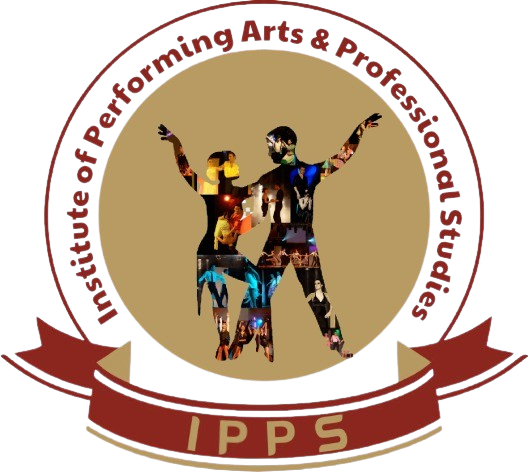Syllabus
This course explores the applications of artificial intelligence (AI) in the field of education and technology with a focus on the Indian context. Students will examine the theoretical foundations of AI, explore various AI technologies, and analyze their potential to transform teaching, learning, and educational administration. Through hands-on projects and case studies, students will develop practical skills in designing and implementing AI-powered educational solutions.
Introduction to AI and Machine Learning
1. Definition and scope of artificial intelligence
2. Key concepts in machine learning: supervised learning, unsupervised learning, reinforcement learning
3. Difference between AI and Basic Data Computing
AI Applications in Technology & Education
1. Adaptive learning systems
2. Intelligent tutoring systems
3. Automated assessment and feedback
Data Science & Analytics
1. Data collection and preprocessing
2. Predictive analytics for student performance
3. Data science for facts and features
Natural Language Processing (NLP)
1. Text mining and sentiment analysis through AI web portals
2. Automated essay scoring and writing
3. Chat bots for student support
Basic Learning Key of AI
1. Foundations of AI: Start by understanding the fundamental concepts and principles of artificial intelligence (AI), including machine learning, neural networks, and natural language processing. This lays the groundwork for more advanced topics.
2. Real-World Applications: Explore the diverse applications of AI in various industries relevant to India, such as healthcare, agriculture, finance, and education. Understanding real-world use cases helps connect theoretical concepts to practical scenarios.
3. 3. Ethical Considerations: Delve into the ethical implications of AI technologies, including bias, privacy, and transparency. Learn how to critically evaluate AI systems and advocate for responsible AI development and deployment.
4. Data Literacy: Develop strong data literacy skills, including data collection, preprocessing, analysis, and interpretation. Learn how to work with large datasets and extract meaningful insights using AI techniques.
5. Programming Proficiency: Gain proficiency in programming languages commonly used in AI development, such as Python and R. Practice implementing AI algorithms and models from scratch, as well as using AI libraries and frameworks.
6. Hands-On Projects: Engage in hands-on projects and practical exercises to apply AI concepts in real-world scenarios. Collaborate with peers on projects that address societal challenges and contribute to the advancement of AI technology.
7. Interdisciplinary Learning: Recognize the interdisciplinary nature of AI and its connections to fields such as mathematics, statistics, computer science, and psychology. Seek opportunities to integrate knowledge from diverse disciplines to solve complex problems.
8. Impactful Innovation: Aspire to leverage AI for positive social impact and sustainable development in India. Explore how AI can address local challenges such as healthcare access, environmental sustainability, and economic inequality, and strive to create innovative solutions that benefit society as a whole.
Placements & Jobs
After completing ‘AI for Education & Technology’ course students can explore various career opportunities and they can apply their knowledge and skills. Here are some potential placement options where IPPS will send you to compete:
1. Tech Companies : Many educational technology companies in India are leveraging AI to develop innovative solutions for teaching, learning, and educational administration. Students can work as AI developers, data scientists, or product managers in Tech startups or established companies.
2. Academic Institutions: Universities, colleges, and research institutes in India are increasingly incorporating AI into their educational programs and initiatives. Students can work as AI educators, researchers, or consultants, helping institutions integrate AI technologies into their curricula, research projects, and administrative processes.
3. 3. Government Agencies: Government bodies and educational authorities in India are investing in AI-driven initiatives to improve the quality, accessibility, and equity of education. Students can work in roles such as AI policy analysts, project managers, or consultants, collaborating with government agencies to design and implement AI-enabled education programs and policies.
4. Nonprofit Organizations: Nonprofit organizations and NGOs in India are using AI to address educational challenges and empower marginalized communities. Students can work in roles such as AI project coordinators, data analysts, or technology trainers, supporting nonprofit initiatives focused on enhancing education access and quality.
5. Corporate Training Departments: Large corporations and multinational companies in India often have dedicated training departments that use AI-powered platforms and tools for employee development and up skilling. Students can work as AI training specialists, instructional designers, or learning experience designers, designing and delivering AI-driven training programs for corporate employees.
6. Consulting Firms: Management consulting firms in India provide advisory services to educational institutions, government agencies, and corporate clients on AI strategy, implementation, and optimization. Students can work as AI consultants, analysts, or solution architects, helping clients identify opportunities and challenges related to AI adoption in education and technology.
7. Freelance and Entrepreneurial Ventures: Students with entrepreneurial ambitions can explore opportunities to launch their own AI-driven startups or consultancy firms focusing on education and technology. They can develop AI-powered educational products, services, or platforms targeting specific segments of the Indian market.
COURSES
1. One Year Diploma Course
2. Six Month Certificate Course
3. Three Month Certificate Course
CLASSES DAYS
TBD
TIMMINGS
TBD
AGE GROUP
18 to 30 Years
